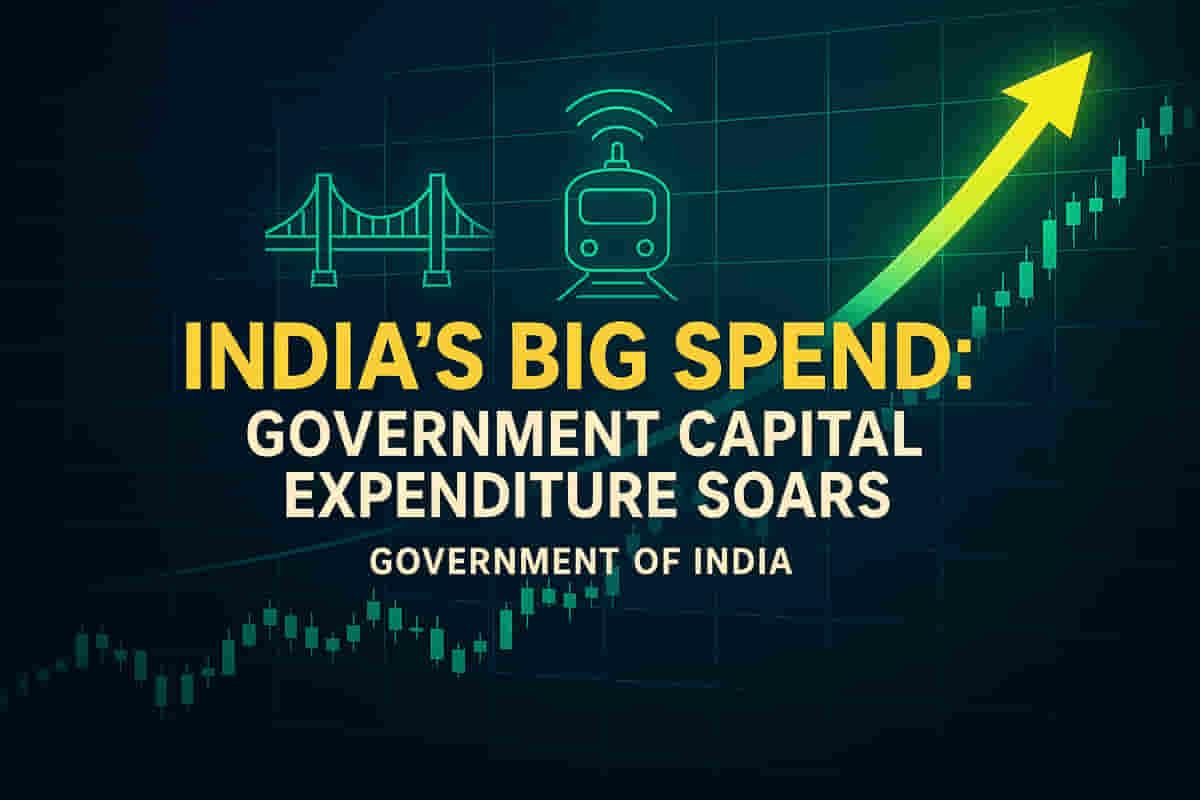India's Central Government Capex Surges 40% in H1 FY26 Amidst Revenue Concerns
Economy
|
31st October 2025, 2:23 PM

▶
Short Description :
Detailed Coverage :
Data from the Controller General of Accounts (CGA) reveals a substantial rise of approximately 39% in overall capital expenditure (capex) by Central Ministries and Departments during the April-September period of FY26, compared to the same period last year. Total capex reached over ₹5.80 lakh crore, representing 52% of the Budget Estimates (BE) of ₹11.21 lakh crore. This strong growth is partly attributed to a lower base in FY25, where government spending was constrained during the general elections.
Key infrastructure sectors also saw increased investment. The Ministry of Road Transport's expenditure grew by around 22% year-on-year, while Railways' spending increased by about 6%. Notably, the Department of Telecommunications reported more than a threefold jump in its capex.
However, net tax revenue growth was muted at 2.8%, with income tax collections up 4.7% and corporate tax collections rising by a mere 1.1%. Indirect taxes saw a 3.2% increase, though customs duties contracted by 5.2%. Experts, including Aditi Nayar, Chief Economist at ICRA, expressed apprehension that tax collections might undershoot the full-year target, requiring over 21% growth in the second half.
The Centre's fiscal deficit stood at 36.5% of the full-year target at the end of the first half of FY26, a notable increase from 29% in the same period of FY25. The government has projected a fiscal deficit of 4.4% of GDP for FY26.
Impact This news indicates robust government spending on infrastructure development, which can stimulate economic activity and benefit related sectors. However, the slower pace of tax revenue growth raises questions about long-term fiscal health and the sustainability of spending if revenue generation doesn't pick up. The market impact is moderately positive due to infrastructure push but tempered by revenue concerns. Rating: 6/10
Terms Capital Expenditure (Capex): Spending by a government or company on fixed assets, such as infrastructure, buildings, or machinery, that will be used over a long period. Budget Estimates (BE): The projected financial plan for a government or organization for a specific period, outlining expected revenues and expenditures. Fiscal Deficit: The difference between the government's total expenditure and its total revenue (excluding borrowings). Gross Tax Revenue (GTR): The total amount of taxes collected by the government before any deductions or refunds. Net Tax Revenue: The total tax revenue collected by the government after deducting the share of states, refunds, and other charges. Devolution of Taxes: The share of taxes collected by the central government that is distributed to state governments as per constitutional provisions.